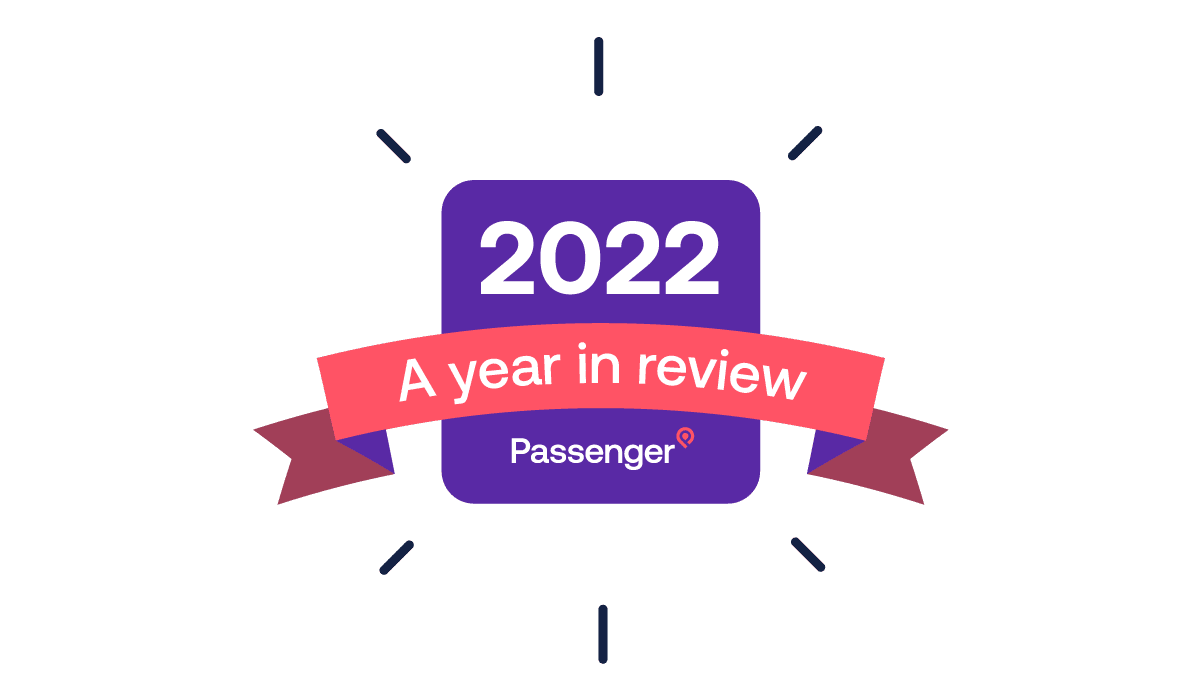Improving accessibility by dropping support for IE
At Passenger, we’re constantly striving to make the most of the web as an accessible platform for delivering timely information to those that need it.
16th Sep 2020


As part of our ongoing commitment to accessibility, we’re finally preparing to drop support for Internet Explorer. Whilst that statement may sound counterintuitive, this article explains exactly why continuing support for the browser would be detrimental to many users that rely on really accessible public transport information.
At Passenger, we’re constantly striving to make the most of the web as an accessible platform for delivering timely information to those that need it. Fast, secure websites should be the norm rather than the exception. But up until now, this hasn’t been as easy as it should have been.
Browsers that have been around since the dawn of the web, like Internet Explorer, haven’t kept pace with the rest of the world. IE11 – the last bastion of Internet Explorer – has finally been cast adrift by Microsoft. It is no longer receiving critical updates, and with fewer of Microsoft’s own products integrating with it, it’s heading further out to sea by the day.
Microsoft now advises IT teams against using Internet Explorer, promoting its modern alternative, Microsoft Edge, in its place. But that doesn’t mean that every IT team has made the switch already. In our experience, it’s often public sector organisations that can find the step a problematic one.
Currently, less than 1.5% of users across all Passenger websites are using Internet Explorer as their browser. Supporting this group makes it more complex to develop new features that improve the experience for the other 98.5%. This is also true for Passenger Cloud too. This system is accessed via a browser and is relied upon daily by operators and local authorities to manage every aspect of Passenger apps and websites.
When making a website, or more accurately in our case, a web application for the modern web whilst at the same time supporting IE11, engineers are forced to make a number of concessions. Loading extra code into the browser to retrofit new features that IE11 does not have is just one example that makes a web page slower to appear. Significantly, IE11 doesn’t support the latest security features, is missing systems that we use to improve the experience for all users, and makes supporting accessibility more difficult.
As these IE user numbers continue to reduce, all of the time needed to do this becomes increasingly hard to justify when it could be used to benefit other users exponentially.
Usage of Internet Explorer in the UK
Today, Internet Explorer use in the UK has never been so low. While there has been a gradual shift away from IE over the years, 2020 has proved to be a decisive year.
March 2020: COVID-19 lockdown and aftermath
The UK-wide lockdown due to COVID-19 caused many people to work from home where they could.
When usage of public transport was discouraged, the corresponding usage of websites dropped massively from March 23rd. From then, we can see an encouraging, steady rise across all browsers. However, Internet Explorer use has slumped and stayed the same.
For context, here’s the two combined:
From this, it seems fair to conclude that people are no longer using Internet Explorer at their office-based desks. Instead it’s possible they are now using laptops from home, without the constraints of restricted office-based IT networks and new found freedoms to choose a different browser.
For the period of 1st May 2020 to 3rd September 2020 we saw 16,729 IE users. In 2019, over the same period, we saw 46,046. That’s almost a 65% drop in just 12 months.
Additionally, from January to March, the drops of weekend use for IE are very deep, supporting the theory that it’s mostly used for work during the week.
The Government Digital Service, responsible for gov.uk, also reported a reduction in the amount of IE users after lockdown – to an all-time low of 2.71% in August 2020.
June: Edge gets a new release
Edge – Microsoft’s replacement for IE – got a new release in June 2020. It’s a new version of Edge that runs on the same technology as Google Chrome.
The latest release was pushed onto Windows 10 installs and is also available for Windows 7 and 8. The intention was to supplant earlier versions of Edge and all Internet Explorer versions, and it came with a big push from Microsoft.
The latest Edge is a great browser and, for us, this release couldn’t have come soon enough.
August: Microsoft drops (some) support
Last month Microsoft announced they will be dropping support for Internet Explorer 11 users on Office 365 from August 17, 2021. Microsoft Teams will also drop support on November 30, 2020. Microsoft has finally had enough of Internet Explorer in its own products.
While many news websites reported this as ‘Microsoft fully dropping IE11 support’, that isn’t quite the case. IE is the only browser that still runs some legacy web applications – old apps designed for IE6 – that organisations rely on. So, for now, Microsoft has to keep IE on life support. IE will receive updates for as long as Windows 10 is supported.
Over the long term, IE usage will continue to fall, with recent events only speeding that up.
How we are helping to transition the last Internet Explorer users
Now is the perfect time to get users onto a new browser and accessing websites more easily.
Starting soon, we’ll be showing a banner to all Internet Explorer users, including our Passenger Cloud administrators, encouraging them to switch to the latest Edge browser from Microsoft. There will also be the option to let us know what might be preventing them from switching, by completing a short form.
At Passenger, inclusivity is one of our five core values. We connect with people to see things through their eyes.
By analysing these results and monitoring the changes to visitor behaviour, we’ll continue to inform our approach to browser support and importantly, bring as many people on the journey with us as possible.

Newsletter
We care about protecting your data. Here’s our Privacy Policy.

Start your journey with Passenger
If you want to learn more, request a demo or talk to someone who can help you take the next step forwards, just drop us a line.
